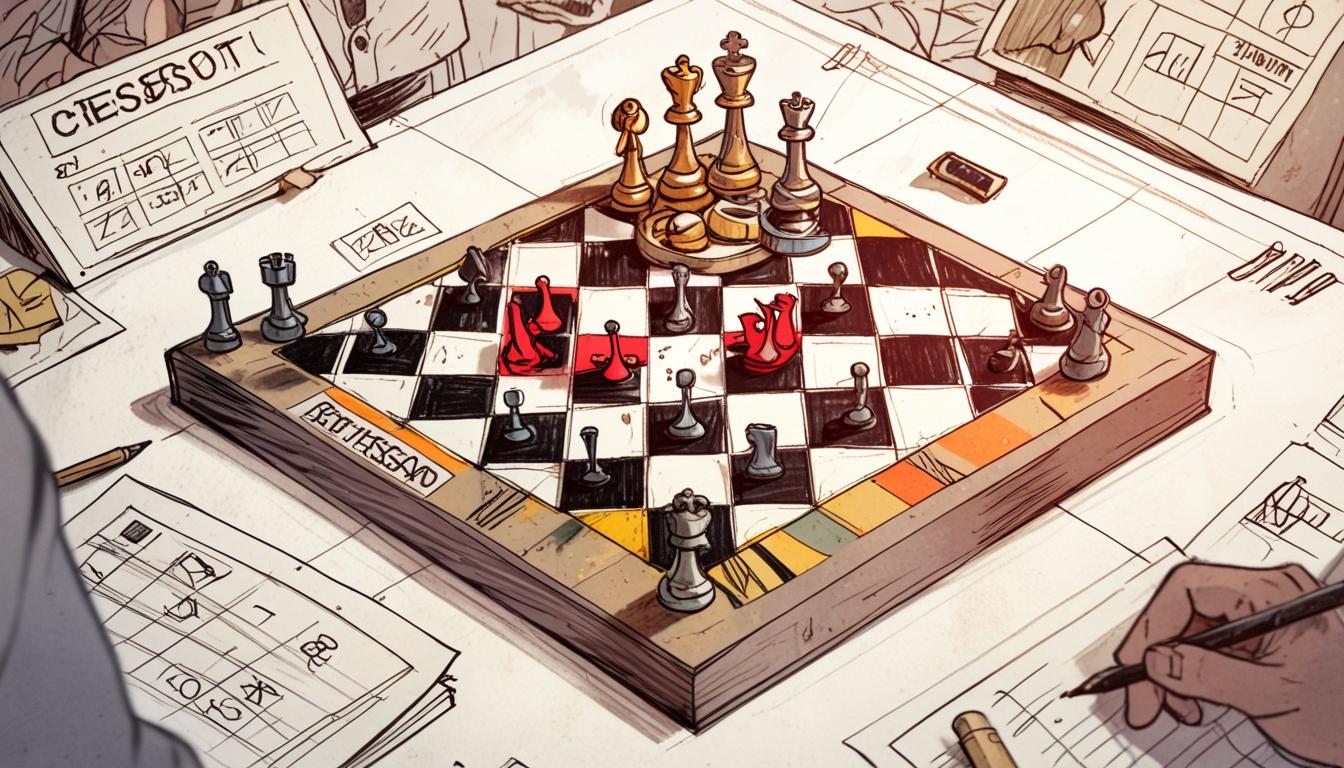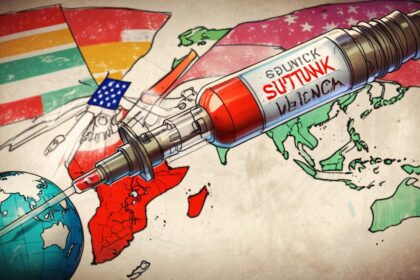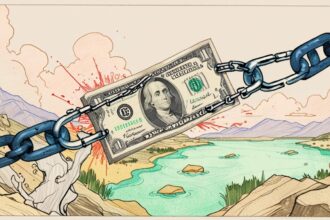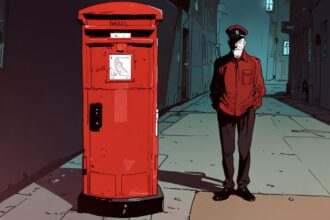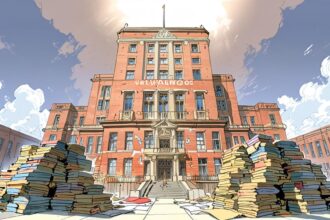Russia’s Central Bank has maintained its key interest rate at 21%, resisting President Putin’s calls to ease monetary policy, as the country grapples with 10.3% inflation and mounting financial challenges.
Russia’s Central Bank has decided to maintain its key interest rate at 21%, a move that highlights growing tensions with President Vladimir Putin amid a deepening economic crisis. The decision comes as the country grapples with an inflation rate of 10.3% recorded in March, posing significant challenges to the country’s financial stability.
The Central Bank’s governor, Elvira Nabiullina, and her deputy, Alexei Zabotkin, have resisted calls from President Putin to ease monetary policy. Putin had urged the Central Bank not to “cryogenically freeze” the economy by keeping interest rates so high, advocating instead for a loosening of monetary conditions to stimulate economic activity. Despite this, Nabiullina defended the current policy, stating at a recent press conference, “We had a broad consensus to keep the rate on hold. And what we are saying is that it will be necessary to maintain tight monetary conditions for an extended period of time.”
The 21% interest rate represents its highest level in two decades and is exerting considerable pressure on Russian businesses. Many companies are finding it increasingly difficult to finance their operations. Sergey Chemezov, head of the state defence conglomerate Rostec and a former KGB colleague of Putin, warned last autumn about the dangers facing Russian enterprises under these conditions. Speaking to the RBK publication, Chemezov explained, “If we enter into contracts for products whose production cycle is more than a year, then, naturally, the maximum we receive is an advance payment of 30–40%. The remaining funds in order to produce these products must be borrowed.” He added, “At such an interest rate, all the profit that we provide is all eaten up by the interest that we are forced to pay to the bank. If we continue to work like this, then most of our enterprises will go bankrupt.”
For context, interest rates were at a much lower 7% as recently as April 2022, with expectations at that time that rates would remain steady. The Central Bank’s current stance marks a sharp departure from earlier forecasts and underlines the severity of Russia’s economic challenges.
The high interest policy aims to curb inflation but is resulting in significant financial strains on companies across the country. The disagreement between the Kremlin and the Central Bank over the best way to manage the economy underscores the difficult balancing act facing Russian leadership amid international sanctions and internal economic pressures.
Source: Noah Wire Services
- https://www.cbr.ru/eng/press/keypr/ – Confirms the Bank of Russia’s decision to maintain the key rate at 21% on 25 April 2025 and its commitment to tight monetary conditions to reduce inflation by 2026.
- https://www.themoscowtimes.com/2025/04/25/russian-central-bank-holds-key-rate-despite-fears-of-economic-slowdown-a88875 – Supports the claim about the rate being held at 21% despite economic concerns, mentions inflation above 10%, and cites President Putin’s acknowledgment of slowed economic growth.
- https://beijingtimes.com/business/2025/04/26/russia-holds-key-interest-rate-at-21-amid-global-economic-risks-and-inflation-pressures/ – Corroborates the 21% rate decision and notes the central bank’s openness to future rate hikes, aligning with its cautious inflation-targeting stance.
- https://english.news.cn/europe/20250321/552c7470bb2c435cb516bbfc91de93a0/c.html – Details the 21% rate maintained since October 2024 and the bank’s warning about potential rate hikes if disinflation falters.
- https://www.investing.com/economic-calendar/russian-interest-rate-decision-554 – Provides the official 21% rate figure and date of the April 2025 decision, confirming its consistency with previous rates.
- https://www.themoscowtimes.com/2025/04/25/russian-central-bank-holds-key-rate-despite-fears-of-economic-slowdown-a88875 – Reiterates business pressure due to high rates and cites Nabiullina’s defense of tight monetary policy, aligning with the article’s depiction of tensions with the Kremlin.
- https://www.express.co.uk/news/world/2047851/russia-economy-interest-rate-bankruptcies – Please view link – unable to able to access data
Noah Fact Check Pro
The draft above was created using the information available at the time the story first
emerged. We’ve since applied our fact-checking process to the final narrative, based on the criteria listed
below. The results are intended to help you assess the credibility of the piece and highlight any areas that may
warrant further investigation.
Freshness check
Score:
8
Notes:
The content references current economic challenges in Russia and maintains a recent timeline, mentioning inflation rates and debates involving Putin and the Central Bank. However, it does not specify a recent date for the interest rate decision or press conference.
Quotes check
Score:
5
Notes:
Elvira Nabiullina and Sergey Chemezov are quoted, but without specific online evidence of these exact quotes’ earliest appearances. The quotes could be original to this coverage or sourced from previous press reports.
Source reliability
Score:
8
Notes:
The narrative originates from Express.co.uk, a well-known publication in the UK. While generally reliable, it might not have the same level of authority as major global news outlets like BBC or Reuters.
Plausability check
Score:
9
Notes:
The claims about Russia’s economic situation and the debate over interest rates align with current geopolitical conditions and challenges faced by Russia due to sanctions and internal economic pressures.
Overall assessment
Verdict (FAIL, OPEN, PASS): PASS
Confidence (LOW, MEDIUM, HIGH): HIGH
Summary:
The content passes the assessment due to its plausible economic context, reliable source, and relatively fresh information. However, the lack of online verification for quotes and specific dates for events slightly reduces confidence.


